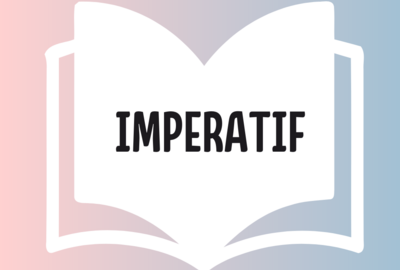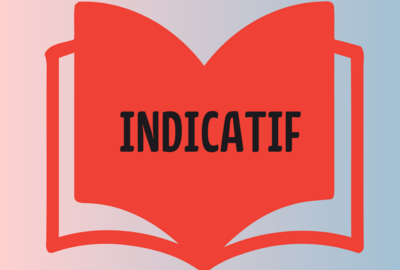
💸 Enjoy incredible discounts and benefits, including Christmas vouchers 🎅🎁 Start saving now! 💰
Understand French grammar
The French language includes many subtleties that make it one of the most difficult languages to learn for foreigners. Indeed, French grammar is sometimes complex, and requires concentration and diligence. Below we give you a brief overview of the main elements of French grammar. These explanations should help you better understand French grammar and allow you to develop a simplified learning plan.
We will examine together all the parts of the French language and we will look at the times. These constitute an important branch of French grammar. That is why you should carefully consider this point.
Understand the basics of French grammar
In order to better understand the rules of French grammar, it is important to know some basic grammatical terms. Knowing these terms will allow you to better follow the explanations and apply the rules. That is why we recommend that you understand the terms and their meaning using the corresponding grammatical classes. We are going to show you the 9 grammatical classes of French words that you will need to master French grammar.
Click here to learn more about grammatical classes in French »
Master the tenses of the French conjugation
French tenses can be a challenge for students since there is a wide variety of different forms and uses. To understand the tenses of French grammar, it is important to proceed systematically and examine the different tenses one by one.
A good starting point is to familiarize yourself with the basic times. The French language has several basic tenses, including the present simple, the past simple, the present continuous, the past continuous, the present perfect, the past perfect, the future simple and the future perfect. Each time has its own rules and customs that must be understood.
Understanding the rules and usages can be difficult, but with practice and patience you can develop a good understanding of French tenses. It can be useful to speak regularly with native speakers or read French texts to familiarize yourself with the different tenses.
To understand the rules of tenses in French, you must have a good understanding of French grammar, especially verbs and their conjugation. To help you, we have explained all the tenses of the French language, themselves divided into different modes. Check out the different modes below and learn and understand French tenses.
The structure of sentences in the French language
French grammar follows very specific rules and patterns when it comes to sentence structure. You should familiarize yourself with these.
So that you can formulate sentences in French without making mistakes, we explain below how to apply grammar correctly and how to formulate good sentences in the French language. In French, a sentence is made up of a coherent set of words that makes sense, called a proposition . One or more clauses can be found within the same sentence. Each of the clauses that form a sentence is made up of several groups of words including a subject, a verb, a complement and sometimes an attribute.
Example sentence in French
Let's take a simple example of a sentence in French: "Je pense que ma soeur a une belle chevelure." which means, "I think my sister has beautiful hair."
This sentence consists of two clauses . The first being, "je crois" (I believe), consists of a subject "je"(I) and a verb "croire"(to believe), which is conjugated. Within the second clause,"que ma soeur a une belle chevelure"(that my sister has beautiful hair), we can distinguish a subject ma soeur (my sister), a verb "avoir"(to have) which is conjugated, and a complement "une belle chevelure"(a beautiful hair).
Sometimes words can be implied in a sentence. Example: "François parle comme son père"(François speaks like his father) which implies "François parle comme parlait son père"(François speaks as his father spoke). This is called an ellipse .
There are mainly 4 types of sentence : First, the declarative sentence which can be either affirmative ,such as:"Lucie a fini ses devoirs" (Lucie has finished her homework) or negative ,such as:"Lucie n'a pas fini ses devoirs" (Lucie has not finished her homework"). Secondly, the interrogative sentence which can be direct ,for example:"Lucie a-t-elle fait ses devoirs ?" (Has Lucie done her homework? ) or indirect (for example: "I wonder if Lucie has done her homework"). Third, the exclamatory sentence such as: "Lucie has finished her homework!" and finally, the imperative sentencelike: "Finish your homework".
The agreement of a name after a number
In the French language, the singular is used when speaking of an entity less than 2. The plural starts from 2. Here are two examples to illustrate this grammatical rule:
- J'ai visité 3 villes françaises. (I visited 3 French cities.)
In this example, we add an "s" to "ville"(city) because the number 3 is greater than 2.
- Ce matin, j'ai marché 1,3 kilomètre. (This morning, I walked 1.3 kilometers.)
On the other hand, in this sentence the noun "kilometer" remains in the singular since 1.3 is less than 2.
Distinguish between the verbs to be and to have
The verb "être" (to be) is generally used when one wants to express a state, an attitude or an action while the verb to have is commonly used to express possession.
Être (to be): "Tu es très jolie" (You are very pretty) or "Je suis un peu stressé aujourd'hui" (I'm a little stressed today.
Avoir (Have) : "Il a une voiture automatique"(He has an automatic car). or "J'ai mal à la tête"(I have a headache).
The interrogative sentence in French
It is important to know the basic rules and structures used to form questions in the French language. Here are the main points to keep in mind when formulating a question in French. We explain below what these points consist of.
Use French interrogative words
The French language has several interrogative words with which questions generally begin. Depending on the interrogative word, different information is requested. See the table below:
| Interrogative word | Usage & Example sentences | |
| qui (who) |
He eats a banana? - He eats what? A banana is COD | |
| à qui (to whose) |
This ring belongs to the woman ? -to whom belongs the ring? to the woman is COI | |
| que/qu' (that) |
Qu'est-ce que tu as mangé ce midi ? - Un sandwich. (What did you eat this afternoon? - A sandwich.) | |
| quoi (what) |
Quoi dire ? (What to say ?) | |
à quoi, de quoi, avec quoi, sur quoi...etc. (to what, from what, with what, on what...etc.) |
À quoi fais-tu référence ? (What are you referring to?) De quoi avez-vous besoin ? (What do you need ?) Avec quoi nettoies-tu ton parquet ? (What do you clean your hardwood floors with?) | |
| où (or) |
Où est le cinéma ? - Dans le centre commercial ? (Where is the cinema? - In the shopping center ?) Où vas-tu ? - À la gare. (Where are you going ? - At the station.) | |
| d'où (from where) |
D'où viens-tu ? - Je viens de Paris. (Where do you come from ? - I come from Paris.) | |
| quand (When) |
Quand avez-vous déjeuner ? - À midi. (When do you have lunch? - At noon.) | |
| comment (how) |
Comment vas-tu y aller? - En voiture. (How are you going to get there? - By car) | |
| pourquoi (Why) |
Pourquoi as-tu annulé ton voyage ? - Parce que je suis tombé malade. (Why did you cancel your trip? - Because I got sick.) Pourquoi veux-tu aller au centre commercial ? - Pour acheter une robe. (Why do you want to go to the mall? - To buy a dress.) | |
| quel/quelle/quels/quelles (what what what what) |
Quelle robe vas-tu choisir ? (What dress will you choose) | |
| lequel/laquelle/lesquels/lesquelles (which/which/which) |
Voici 3 robes. Laquelle préfères-tu ? (Here are 3 dresses. Which one do you prefer?) | |
| combien(How much) |
Combien de frères et soeurs as-tu? (How many brothers and sister do you have) |
Other forms of interrogative sentences
Question with a rising intonation : This is probably the simplest interrogative sentence form. It is used in colloquial language. The structure of the sentence is the same as for an affirmative sentence, only the intonation of the voice changes. Example : Tu vas à la bibliothèque ? ( Are you going to the library?)
Question with "does" : Questions with do are often used in everyday language, either to formulate a partial question, with an interrogative word (example: With whom do you have lunch?) or to formulate a total question, without interrogative words Example : Est-ce que je peux mettre cette robe ? ( Can I put on this dress?)
Questioning with modal verbs
In French, questions are also often formed using modal verbs.
When using modal verbs such as "pouvoir", "devoir", or "falloir", the modal verb is placed directly before the subject. Here are two examples of questions with modal verbs: : "Pouvez-vous m'aider ?" (Can you help me?) and "Dois-je appeler le médecin ?" (Should I call the doctor?).
The use of auxiliary verbs
In French, questions are often formed using auxiliary verbs. Here again are two sample questions that use auxiliary verbs to form the question: : "Avez-vous reçu ma candidature ?" (Did you receive my application?) and "Es-tu disponible ce week-end ?(Are you available this weekend).
Improve your French grammar on a language trip
Do you want to improve your French? So start your unforgettable language trip now in the French-speaking country of your choice!
The basic rules of placing commas in French grammar
In French grammar, commas can sometimes be confusing and difficult to understand. That's why it's good to remember a few basic rules regarding the placement of the comma in French. These will help you find the correct place for the comma in your sentences. The following overview gives you an idea of the basic rules of comma placement in French.
Commas between two main sentences
There must always be a comma between two main clauses. A main clause is recognised by the fact that the sentence can also stand on its own without losing its meaning. If two main clauses are connected to one, a comma must be placed between the two main clauses. The following example illustrates this.
Example sentence: Linda s'est rendue à Malte et a profité de son été pour apprendre l'anglais. (Linda went to Malta and used her summer to learn English.)
Placing commas in sentence insertions and subordinate clauses
If you include an insertion or subordinate clause in your English sentence, you must place a comma before the insertion or subordinate clause. You can recognise a subordinate clause by the fact that the main clause makes sense without the information mentioned in the subordinate clause or insertion. Here is an example of the comma rule.
Example : Linda, qui a passé ses vacances à Malte, a considérablement amélioré son anglais. (Linda, who spent her holidays in Malta, has considerably improved her English.)
Setting commas for bulleted lists
When more than two adjectives or three or more main clauses, phrases or words follow each other, a comma is placed. For a better understanding, take a look at the following example of comma placement in bulleted lists.
Example : Il a fait sa valise, s'est rendu à l'aéroport et a pris un vol pour Malte. (He packed his suitcase, went to the airport and caught a flight to Malta.)



